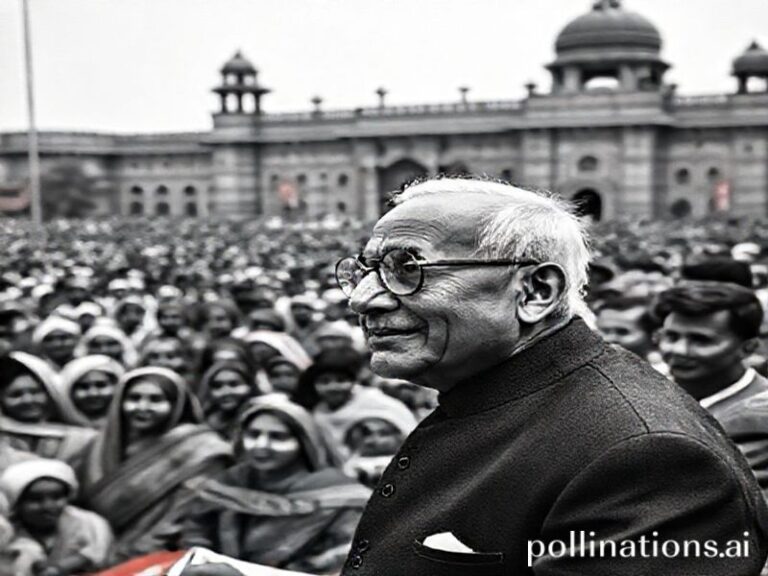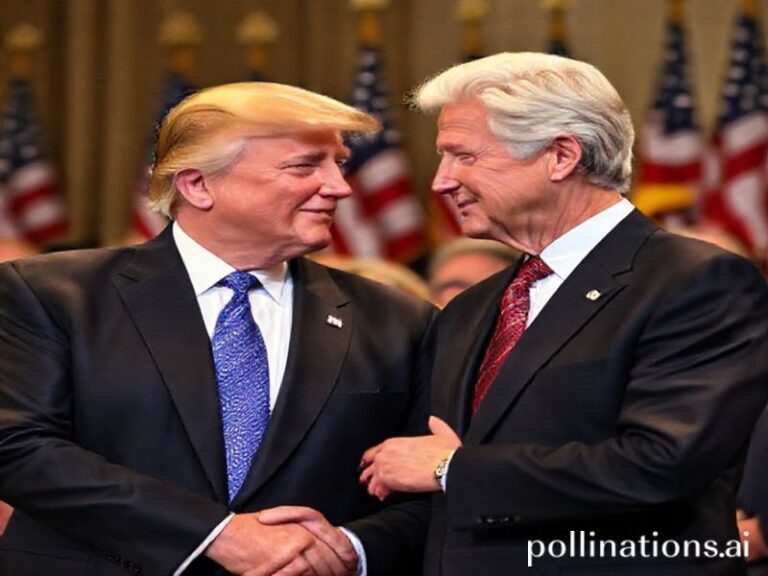Rahul Chopra: The Instant-Noodle Martyr Who Became a Global Metaphor for AI Anxiety
Rahul Chopra, a name that sounds like a polite cough in a Mumbai elevator, has quietly become the poster child for a very 2024 kind of global panic: the fear that your résumé might one day read “CEO, My Own Life, until the algorithm noticed.” Last month the 31-year-old data scientist was escorted out of his glass-and-kombucha tower in Singapore after submitting a routine expense report that, thanks to a misplaced decimal and the company’s new AI auditor, flagged him for “suspiciously lavish” spending on instant noodles. By the time the decimal was restored and the noodles vindicated, Chopra had already trended on three continents, been memed into oblivion, and inspired a small but spirited protest in Lisbon under the banner “Humans Against Math.”
The international angle here is not that Chopra is especially heroic or villainous—he’s basically Dilbert with a passport—but that his micro-drama landed during the exact week the OECD published its annual reminder that 300 million of us are about to be “reallocated” by software. In Manila, call-center agents passed around screenshots of Chopra’s pink slip like trading cards. In Lagos, fintech founders used it as a cautionary slide in pitch decks: “Don’t be the next Rahul.” Even in Reykjavík, where the national pastime is smugly not having problems, a left-field minister cited the case while proposing a 32-hour workweek “before the machines schedule our naps.”
Singapore, always eager to prove it can monetize embarrassment, promptly launched a pilot program called Reskill & Chill, offering displaced tech workers subsidized yoga and a voucher for artisanal coffee—because nothing says “future-proof” like the ability to hold a tree pose while discussing NFTs. Chopra, still unemployed but suddenly an accidental influencer, now spends his afternoons on Clubhouse panels explaining how it feels to be “deplatformed from capitalism.” Corporate listeners from Frankfurt to Fremont take feverish notes, as though unemployment were a new feature they could beta-test.
Meanwhile, geopolitics barged in, as it always does, drunk and looking for a fight. Washington blamed Beijing for over-automating supply chains; Beijing blamed Washington for over-consumption of dumplings; Brussels, ever the hall monitor, proposed a tariff on “algorithmic schadenfreude.” All of which proves the first law of global crises: if you can’t fix it, at least monetize the blame.
Yet beneath the snark lies a genuinely cross-border tremor. Chopra’s story is the canary in every coalmine: the same software that flagged his noodle splurge is already scanning shipping manifests in Rotterdam, radiology scans in Toronto, and tax receipts in Buenos Aires. The difference is only bandwidth and local cuisine. When a mid-level analyst can become an international metaphor overnight, the concept of “local news” starts to feel quaint, like dial-up or sincerity.
What does Chopra actually want? According to his latest Substack—subject line: “So I Guess We’re All Side Quests Now”—he’d simply like a job where the performance review isn’t conducted by a toaster with a law degree. He’s applied to 43 companies in 11 countries, received three automated rejections in Estonian, and one earnest invitation to intern, unpaid, at a DAO whose stated mission is “reinventing serfdom for Web3.” He’s considering it. After all, rent in Singapore is a liquid asset only in the sense that it makes your bank account cry.
The broader significance, if we must be adult about it, is that Chopra is the first human Rorschach test of the post-ChatGPT economy: half the world sees him as proof that AI is finally eating the white-collar class, the other half sees free entertainment. The tragic punchline is that both camps are correct. Somewhere in Davos, a consultant just billed eight hours for a slide titled “The Chopra Paradox: Leveraging Involuntary Virality for Stakeholder Synergy.” The rest of us, meanwhile, refresh our LinkedIn profiles with the quiet desperation of passengers rearranging deck chairs on a very air-conditioned Titanic.
So here’s to Rahul Chopra: may his noodles stay firm, his notifications mercifully silent, and his fifteen minutes stretch just long enough for the rest of us to update our privacy settings. Because if the algorithm is coming for anyone, it’s coming for everyone—alphabetically, and with a sense of humor darker than this column dares to print.







